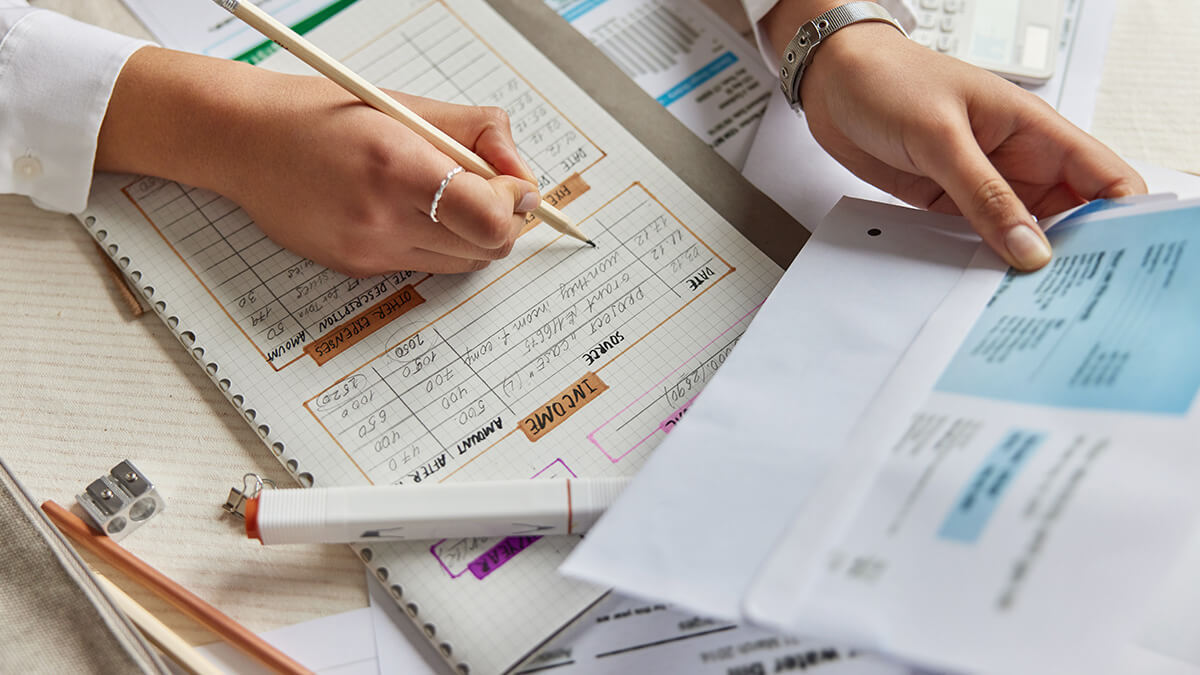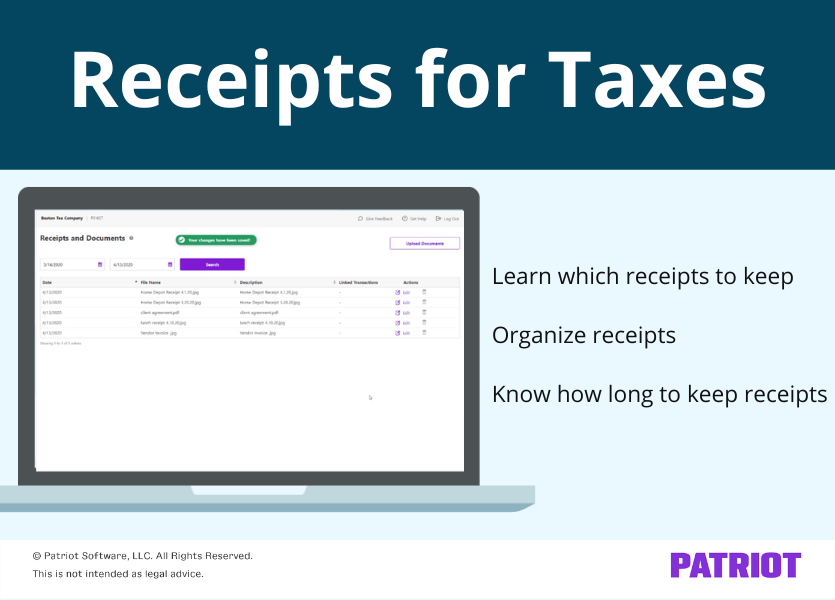

Tax season might be once a year, but preparing for tax season is a year-round process. To back up your tax deduction claims, you need to keep business receipts. But, what kind of receipts for taxes do you need? And which small business receipts can you pitch?
Read on to learn about types of business receipts, the receipts you need for taxes as both a business and individual, and more.
Receipts are supporting documents that business owners must retain for recordkeeping and tax filing. They help provide a full picture of your business’s income and expenses.
Business receipts show the payee, amount of purchase, and proof of payment. Use them to back up both purchases and sales you make. Examples of receipts to keep in your records include receipt books, credit card receipts, and purchase receipts.
Receipts are a key part of recordkeeping, but they aren’t the only supporting documents you need to keep. According to the IRS, supporting documents also include sales slips, paid bills, invoices, deposit slips, and canceled checks.
Keeping receipts for taxes is essential for business compliance. Not to mention, it is difficult to claim tax deductions without receipts.
When it comes to correctly keeping receipts for taxes, follow these tips:

Again, the IRS requires that you keep receipts and other documents to support your expenses. And according to the IRS, a receipt generally must show the:
Let’s say you go to a restaurant for business. You need to prove the business expense with a receipt showing the name and location of the restaurant, the number of people served, and the date and amount of the expense.
The IRS does not require that you document expenses (other than lodging) that are less than $75 or transportation expenses where a receipt isn’t readily available.
Take a look at the following types of receipts and records you must keep for taxes, organized by category.
Gross receipts
Purchases
Expenses
Business expenses, such as supplies, marketing, insurance, and office expenses, add up quickly. Make sure to save any and all qualifying receipts relating to your business.
For example, keep receipts for expenses such as gas and repairs if you want to claim the business vehicle tax deduction (actual expense method). And if you want to claim the home office tax deduction (actual expense method), hang onto receipts for your mortgage or rent and utilities.
Business receipts aren’t the only ones you need to keep for taxes. Individual taxpayers should also hang onto receipts to maximize tax refunds.
Receipts you might want to keep for your individual tax return include:
When you’re in business, you give and receive plenty of receipts in a year. And when you have a few years’ worth of receipts, you may feel overwhelmed and disorganized.
Organize small business receipts to simplify tax time, keep your accounting books accurate, and keep your financial documents in order. So, make sure to keep receipts secure and orderly. Use a method that makes sense to you, such as organizing receipts chronologically and categorizing them by income or expense type.
Take a look at a few methods you can use to organize receipts:
Filing cabinets might be one receipt storage method, but it can be tricky to manage. To save space and protect your receipts from wear and tear, consider organizing receipts electronically. You can organize e-receipts through digital folders or accounting software.
With accounting software, you can easily upload and track receipts in your account. Opt for a system that lets you attach digital receipts directly to transactions for the ultimate recordkeeping strategy.

Securely upload receipts and attach them to any transactions for easy access. Get tax time ready today!